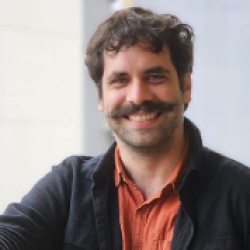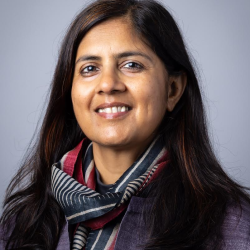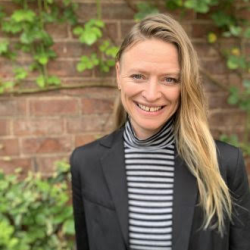
Changing Lay-Mendicant Relationships
Feb 10, 2025
8:00 - 9:30 AM PST
Presiding: Luitgard Soni, Innsbruck

Luitgard Soni has a Phd in Philosophy from the University of Salzburg, Austria, and studied Sanskrit, Indian Philosophy and Hindi at the Banaras Hindu University. She was affiliated to the University of Marburg, Germany, from 1992 to 2012: as a part-time lecturer in the Department of Indology and Tibetology, and as a full-time lecturer in Speech Science in the Department of German Studies. She now lives in Innsbruck, Austria, continuing her research mainly on Jaina literature. See her website for further details and publications:
https://sites.google.com/view/websitesoni/luitgard-soni
Changing Lay-Mendicant Relationships
Presenter: Leonardo Stockler, University of Birmingham

Leonardo Stockler, born on September 9, 1989, in the countryside of São Paulo, Brazil, graduated in History from the Universidade Estadual Paulista (UNESP) in 2013. In his master's research, at the Pontifical Catholic University of São Paulo, he studied the transplantation of Yoga from India do Brazil. Since then, he has published articles on Modern Yoga, ancient Indian and Greek philosophy, music and other aspects of the spiritual traditions of India and the world. During his PhD research, thanks to a partnership established between the Pontifical Catholic University and the International School for Jain Studies, he was able to dedicate himself to a field study on the Jain tradition and was also awarded a scholarship to study the Prakrit language in Pune during 9 months. At this moment, he is following an internship at the University of Birmingham, under the guidance of Dr. Marie-Hélène Gorisse.
“Material and Symbolic Exchanges Between Young Śrāvaka and Jain Ascetics”
In this presentation I intend to explore selected aspects of the relationship and interaction between monks and laypeople in the Jaina community. These relationships have already been understood by anthropologists and sociologists as being contradictory and complementary at the same time, and as including an exchange that is both material and symbolic. To weigh some concrete implications of this state of affair, I will focus on the anxieties and demands of young Jainas, especially those of university age. In terms of methodology, I follow a qualitative description that I cross-analyse with patterns observed in quantitative data. By interviewing monks, nuns and devotees from different streams of the Jain tradition, in the cities of Pune and Mumbai, in the years of 2023-2024, some interesting questions arose: What is a “dharmic” family? How important are the examples of renunciation for one’s behaviour in the domestic environment? To what extent are young people attracted by, or moving away, from the doctrine and the community? Which motivators allow us to explain such proximity and distance? And how the answers to these questions help us in order describe the contemporary spectrum of interactions between monks and householders?
Presenter: Shivani Bothra, California State University, Long Beach

Shivani Bothra is an Assistant Professor in the Department of Religious Studies at California State University, Long Beach. Before this, she worked as a postdoctoral researcher at Rice University in Houston, USA, and taught as a lecturer in Religious Studies at the University of California, Santa Barbara. She earned her doctorate from the Victoria University of Wellington in New Zealand. Her focus is South Asian traditions, Jainism, and Nonviolence. Shivani's primary research areas are transnational Jainism, emphasizing Contemporary Jains.
“Jain Lay-Mendicant Relations Beyond Traditional Discourse: An Ethnographic Insight”
How do relationships between Jain laypeople and mendicants reflect the evolving dynamics of religious practice and social hierarchy? This question lies at the heart of the talk, which examines Jain lay-mendicant relations through both historical texts and ethnographic observations. The Jain community is organized as a fourfold order (caturvidha sangha), comprising monks, nuns, laymen, and laywomen. This structure not only emphasizes the spiritual interdependence among these groups but also embodies a hierarchical framework shaped by historical social norms. By juxtaposing textual ideals with everyday practices, I explore where these two groups converge in shared ethical commitments and spiritual goals and where they diverge due to differing roles, expectations, and interpretations of Jain teachings.





